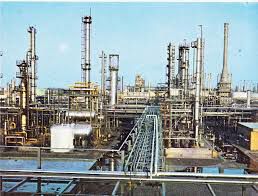IRAN, AND THE ROOT OF THE ANGLO-IRANIAN OIL COMPANY’S DISPUTE. CHALLENGING THE UNITED KINGDOM’S WORLD AUTHORITY. A TURNING POINT. 1945-1951
‘Profound ignorance of the benefit of the Agreement to Persia is almost universal at all political level, ¹ was the view of Sir Francis Shepherd, British Ambassador to Teheran. This has been the British perception of the Anglo-Iranian Oil Company’s account of events.² On 20th March 1951, Majlis approved a recommendation from the Oil Committee for the nationalisation of AIOC; on 28th April it passed a bill to implement this nationalisation and on the same day Dr. Mussadiq was appointed Prime Minister.
Dr. Muhammad Musaddiq received his doctorate in 1914 from Neuchatel University in Switzerland, in Law. He was a descendant of the Qajar dynasty, and a member of Iran’s upper class. His government posts included Governor-General of Fars and Azerbaijan, Minister of Finance, and Minister of Foreign Affairs. His posts as the Governor-General and Minister were brief. In 1920 Dr. Musaddiq was elected to the Fifth Majlis as a deputy from Teheran. He was an intense nationalist, believing that by purging foreign influence from Iran poverty could be eradicated from his country.
Musaddiq also became a vocal critic of Reza Shah, which led to his imprisonment in 1940. He gained his freedom after Reza Shah abdicated in 1941. The reason for the Shah’s abdication was seen earlier in this chapter. In 1944 Dr. Musaddiq became the leading Deputy from Teheran in the Fourteenth Majlis, and soon after launched a vocal campaign for the end of all foreign influence in Iran. This led to 1947’s request from Iran for a revision of the 1933 Agreement, which has been pointed out. Musaddiq believed that the nationalisation of the Anglo-Iranian Oil Company would be the answer to poverty in Iran. His anti-foreign influence in Iran gave him a strong following. Musaddiq mobilised his supporters against the Supplemental Agreement of 1949 which was described, which he saw as perpetuating foreign control over Iran’s oil resources. In 1950, as has been shown, Musaddiq chaired the Oil committee of the Majlis, and the Supplemental Agreement was rejected. He then called for the outright nationalisation of the Anglo-Iranian Oil Company. Due to the strong following that Musaddiq had increasingly gained in Iran, his influential position in the Majlis, and the rioting that took place in Abadan by early 1951, compelled the Shah to appoint him as the Prime Minister.³
-
-
-
-
-
-
- PRO, London, FO 371/82374, General Political Correspondence of the Foreign Office, Sir Frances Shepherd, British Ambassador in Teheran to the Foreign Office, on negotiations between AIOC and the Persian Government, 21st April 1950.
- For a study of the Iranian side of event, see J.A. BILL and W.R. LOUIS, Musaddiq, Iranian Nationalism and Oil, (London: I.B. Tauris and Co. Ltd., Publishers, 1988).
- Ibid., Chapters 1,2.
-
-
-
-
-
[/vc_column_text][/vc_column][/vc_row]



